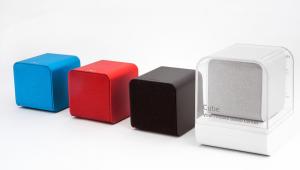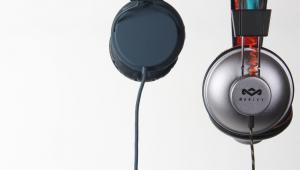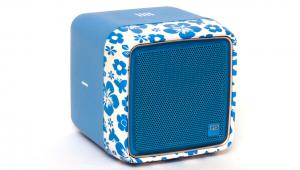Personal Safety Tech: Everyday Wearables in Case of Emergency
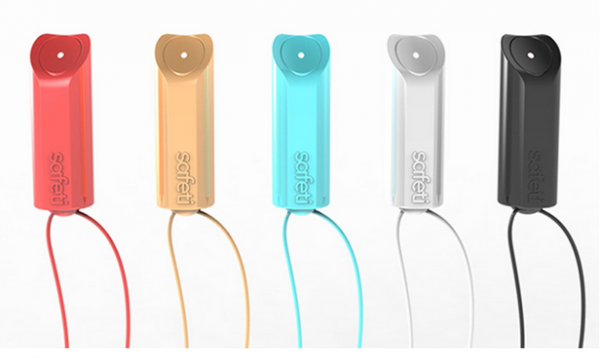
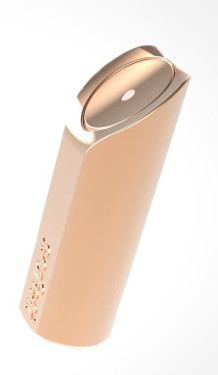 Take, for example, the Safeti (photo above), a new crowd-funded device on Indegogo that can attach to a keychain, bag, or zipper pull. It is a single button function that, when pressed rapidly, connects to a “personal safety concierge” who will call your phone, track your GPS location, as well as alert friends and family members that you pre-designate that you might be running into trouble. If needed, the concierge will also call 911. (Say, for example, if you don’t answer your phone when they call.) Safeti is $89, and you get 4 concierge calls per year for free. The device also works without a phone nearby and can track your location and alert Safeti’s concierge and your friends to call 911 for you.
Take, for example, the Safeti (photo above), a new crowd-funded device on Indegogo that can attach to a keychain, bag, or zipper pull. It is a single button function that, when pressed rapidly, connects to a “personal safety concierge” who will call your phone, track your GPS location, as well as alert friends and family members that you pre-designate that you might be running into trouble. If needed, the concierge will also call 911. (Say, for example, if you don’t answer your phone when they call.) Safeti is $89, and you get 4 concierge calls per year for free. The device also works without a phone nearby and can track your location and alert Safeti’s concierge and your friends to call 911 for you.
But let’s say you don’t want to have to walk around with your finger on a button. Well, in that case there are wearables such as the Cuff and the Siren Ring. The Cuff is a electronic module that slips into a bracelet, necklace, or sport band (each sold separately) that, aside from buzzing when you get texts, also allows you to pre-set Facebook contacts that can be alerted in an emergency. Cuff will send out an SOS with live audio and your location until one of your contacts responds. The downside is that the Cuff requires your phone to be tethered and in proximity to work. The Cuff is available for pre sale for $49-$199 depending on what jewelry casing you choose.
The Siren Ring looks like something you get for winning the Superbowl, and houses a 110 dB alarm that sends out a shrill wail until you shut it off. The makers of Siren recommend aiming the ring at your attacker for maximum effectiveness. I’ll be honest here, the visual of this makes me think of something the Green Lantern would do in peril. That said, I’m not sure the potential of pointing a noisy ring at someone will make me feel safer. Plus with a $199 price tag, I think I’d want more than just beeping in terms of functionality.
But what if you don’t want to push anything at all? Well, there’s the adorably named Dorothy, and the First Sign Hair Clip. The Dorothy functions similarly to the Cuff in that it needs your phone nearby to function, and sends out a message to friends with your location if you’re in trouble. How does it work? The Dorothy is a small sensor that goes in your shoes, and is activated when you click your heels together three times.
But this takes foresight. Dorothy is flexible in functionality, so you need to use the included app to assign a task that you’d like associated with your heel clicks. As a result, unless you activate a safety alert functionality prior to encountering danger, you might just end up calling for a pizza. (One of its other potential functions) Dorothy is still in prototype stages, so the MSRP has yet to be released.
The First Sign Hair clip is a lot more straightforward in its safety application. Tethered wirelessly to your phone, the clip has a gyroscope and accelerometer enclosed that will activate an alert in the event there is a fall or impact detected. This will trigger a microphone that records the attack and is stored in a cloud server (evidence you can later use to prosecute your attacker). It also sends your location to 911, as well as your pre-set contacts. First Sign does all of this without you needing to press a single button. The designers say that accidental activations are very rare, and false alarms can be deactivated by entering a PIN.
The service costs $5 a month, and the device costs $50 (additional clip styles are extra) And, as the daughter of a police officer, I know the power of evidence. Because the recordings are stored in the cloud, even destroying the device won’t damage the data. The First Sign is the only device that offers this extra protection, and as a result is my favorite.
The clip can be put into a specially designed headband, hair clip, or belt clip. This thrills me, because it means that the First Sign is also unisex. In reading up on all of these wearables, I couldn’t help but notice how women-centric they were. It’s not without reason, I suppose. One in three women will be attacked in their lifetime. That’s a staggering statistic, and it nags at my gut every time I walk to my car alone at night.
I won’t get into the discussion fully here, but while I do think it’s worthwhile to offer women more ways to protect themselves, I also firmly believe we need to spend equal time educating men that violence is unacceptable. We live in a culture where often men’s aggression is celebrated, women are regarded as objects to be taken, and a good many men see feminism as a threat rather than a bid for equality.
But to focus solely on women also negates the reality that men are also the victims of violence. Especially for those in the LGBT community, the risk of attack is very real. So I hope that as these kinds of devices and apps continue to develop and flourish, they will take the needs of humans of all kinds into account. Combine that with better discussions on domestic violence, sexual violence, and objectification in the media, and maybe, if we’re really lucky, one day we won’t need anything to track our safety at all.







